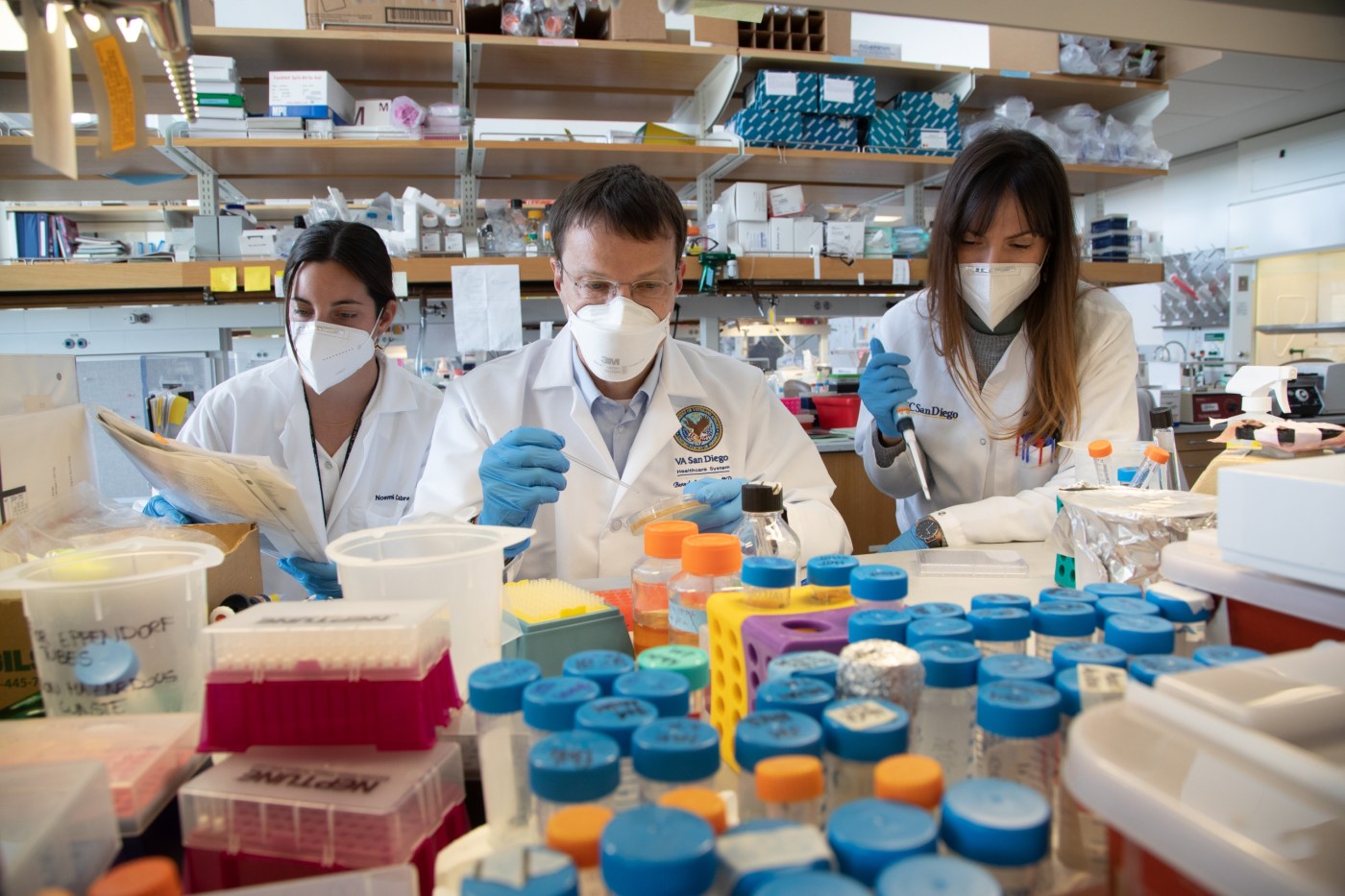Viruses that target bacteria are showing promise as treatment for some intestinal diseases, according to a review article authored by VA researchers.
Called bacteriophages, or phages, these viruses cannot infect human cells. Phages are incredibly diverse and exist everywhere in the environment, including in our bodies; in fact, humans contain more phages than human cells.
Phages are naturally occurring viruses that attack and kill bacteria. A phage consists of a head, a sheath and a tail. The phage uses its tail to attach to a bacterial cell. There are countless types of phages, each specific to a certain strain or subtype of bacteria.
Phages use the bacteria to replicate themselves. A phage finds a “matching” bacterial cell and injects its genetic material, hijacking the system normally used for bacterial reproduction. The system instead makes thousands more phages, which ultimately burst the bacterial cell, releasing it into the environment of the gastrointestinal tract or elsewhere in the body.
Phages useful for ‘precision editing’ within body
Phages are a unique tool for targeting bacteria, said senior author Dr. Bernd Schnabl, a physician-researcher at the VA San Diego Healthcare System, professor of medicine at UC-San Diego School of Medicine, and director of the San Diego Digestive Diseases Research Center.
“Antibiotics kill bacteria, but they do not discriminate between good and harmful bacteria,” he said. “Phages are so specific for bacterial strains that even within one species of bacteria, the phage might not be able to recognize all strains.”
Phages’ specificity means they could be used for “precision editing,” wiping out bacterial infections or treating chronic diseases that involve certain bacterial strains, without killing beneficial bacteria or upsetting the overall intestinal balance of bacteria (also called the gut biome). This includes antibiotic-resistant bacteria.
Hepatitis among the conditions that phages may treat
Phages also are being studied as treatments for chronic conditions that involve bacteria. This research requires a better understanding of the human gut microbiome: the population of viruses, bacteria and fungi that live in the digestive tract. The gut microbiome has been linked with a variety of conditions, including colorectal cancer, inflammatory bowel disease, type 2 diabetes and high blood pressure.
Schnabl and colleagues have learned that about 30% of people with alcoholic hepatitis harbor a strain of bacteria called Enterococcus faecalis that releases a toxin.
“We have linked this toxin to disease severity and mortality,” said Schnabl. “Alcoholic hepatitis has high mortality overall, but our research found that people with this toxin-producing bacterial strain in their gastrointestinal tract had a much higher six-month mortality rate than those who did not.”
Eliminating the bacteria
Further research showed that mice that harbored the toxin-producing bacteria and received alcohol were likely to develop more severe liver disease. When researchers gave the mice phages that targeted that specific strain of E. faecalis, the toxin levels decreased and the disease subsided.
“The first step is always to identify if there are certain bacterial strains associated with a disease,” said Schnabl. “Then identify a phage that preys on a harmful bacterial strain, and then amplify the phage.” Phages are amplified in a lab by providing them with the bacterial strain that they recognize. The phages replicate themselves repeatedly, producing millions of copies.
“Next, we test to see if we can use the phages to eliminate those bacteria in preclinical models, and what happens when they are eliminated. Then we can look at the clinical potential.”
More Information
Click here to read the full story.
Click here to learn more about VA research.
Topics in this story
More Stories
Bob Jesse Award celebrates the achievements of a VA employee and a team or department that exemplifies innovative practices within VA.
The Medical Foster Home program offers Veterans an alternative to nursing homes.
Watch the Under Secretary for Health and a panel of experts discuss VA Health Connect tele-emergency care.






